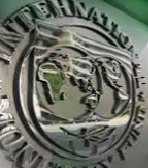The International Monetary Fund (IMF) has immediately raised reservations regarding Pakistan’s recently announced wheat policy, which introduces a concept the government terms an ‘index price’ for the crop. The policy, while framed to ensure farmer compensation and food security, has drawn scrutiny from the international lender over its financial implications.
Clarification Sought on Pricing Mechanism
Following the policy’s approval, the Federal Ministry of Food received an official letter from the IMF. The lender specifically requested clarification on the outline of the policy, the precise method used to determine the price, and its possible financial impact on the national budget.
The ministry has since issued a clarification, asserting that the fixed price is not a traditional minimum support price but rather an ‘index price’. This figure, according to the government, is compiled by factoring in international market prices, the nature of the local market, and existing production costs.
Government Defends Rationale
The government has defended its new pricing strategy, stating its aim is threefold: to provide fair compensation to farmers, ensure consumer affordability, and safeguard national food security.
In addressing the IMF’s concerns, the Pakistani government has emphasized that it has adopted a strategy that promotes financial reforms and ongoing cooperation with international institutions. The outcome of these discussions will be critical as Pakistan seeks to balance domestic agricultural stability with its fiscal commitments to the IMF.




